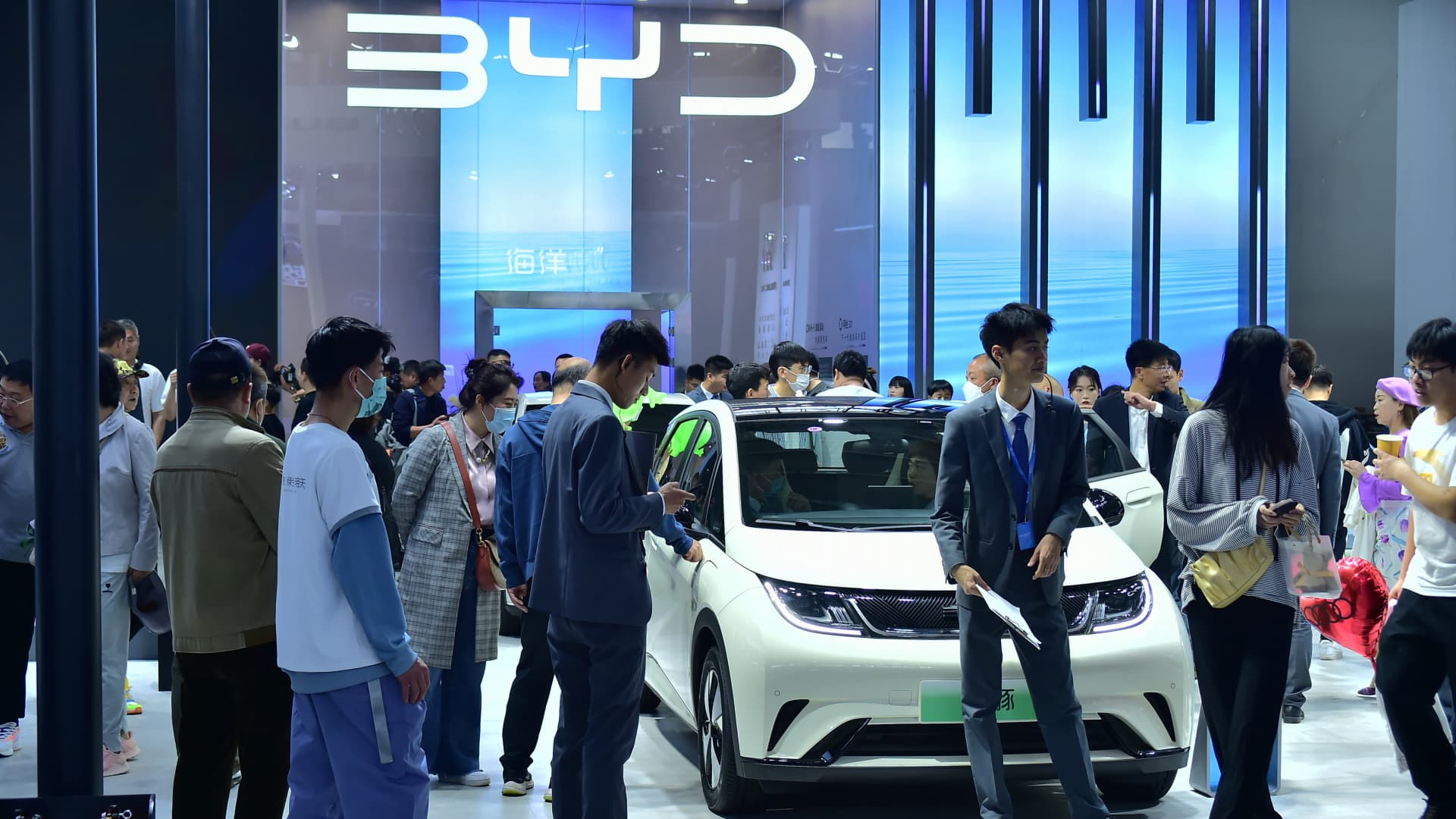Chinese electric vehicles will remain competitive in Europe despite the EU’s additional tariffs on autos made in the country, particularly after they were revised lower last month.
In the latest tariff revisions at end August, BYD, China’s behemoth automaker, saw tariffs cut to 17% from 17.4%, Geely to 19.3% from 19.9%, and SAIC saw a reduction to 36.3% from 37.6%.
To make the European market unattractive for Chinese EV exporters, tariffs have to be as high as 50%, according to research group Rhodium. It said that number might need to be even higher for vertically integrated manufacturers such as BYD.
The current tariffs will not be a significant deterrent to China’s EV-makers, said Joseph McCabe, president and CEO of global auto research company AutoForecast Solutions. “Tariffs on Chinese-made EVs will create a hurdle, but not a barrier to entry,” he added.

He pointed out that the EU’s tariffs were not as severe as those announced by North America because European and Chinese original equipment manufacturers are heavily interconnected. The U.S. announced a 100% tariff on Chinese EVs in May this year. Canada followed suit last month.
“It is a delicate balance to promote domestic European production without severely impacting their Chinese operations,” McCabe said.
Chinese EV makers are coming up with newer, cheaper offerings even as the EU strives to curtail imports via tariffs.

At a conference in May this year, Chinese behemoth BYD announced its Dolphin model to the European market at less than $21,550. The model is a rebrand of the Chinese Seagull model.
In comparison, Western EV-maker Tesla’s Model 3, the brand’s cheapest offering, is being sold for $44,480 in the United Kingdom. Electric vehicles made by Tesla in China also face a 9% tariff on imports to the EU.
Even with the 17% levy, BYD’s Dolphin model will still be about $23,270 cheaper than the China-imported Tesla Model 3.
To better compete with fierce Chinese rivals, German brand Volkswagen has announced plans to develop a low-cost electric vehicle for the European market at a comparable price of around $21,476 by 2027.
“Now, profitability takes a back seat to market share. The investment community rewards new, innovative EV players on the promise what they could be rather than short-term financial performance that legacy manufacturers are measured,” said McCabe.
“If they really have to kill the EV industry in China, they have to put in 300% of tariffs … which, you know, doesn’t make sense from my perspective,” William Ma, CIO of GROW Investment Group told CNBC’s “Street Signs Asia” on Tuesday.
If the Chinese original equipment manufacturing sector is affected, the risk of retaliatory tariff measures from China against Europe is high, McCabe warned.
EU tariff talks started in June as a response to “unfair subsidies” to Chinese EV makers, which pose “a threat of economic injury” to European EV counterparts.
“This geopolitical or sanction will not go away easily for the next year or two,” Ma said.

